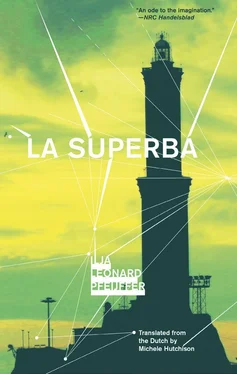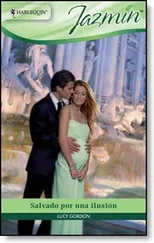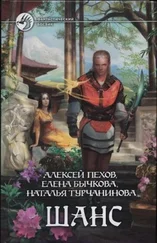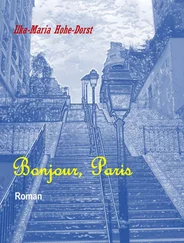At Porta dei Vacca, I saw the coach driven by a monk who was faceless under his hood, taking the restless victims of violence to a quiet place in the mountains. I heard the prisoners’ chains rattling on Campo Pisano. I saw the veiled woman of Vico del Duca, and on Piazza del Amor Perfetto I saw the beautiful prostitute holding a cabbage from a window on the fifth floor, but when I took a better look, I saw that it wasn’t a cabbage but the head of a jealous lover.
Just by there, on Piazza Banchi, at night I heard the ethereal music of the composer Alessandro Stradella, who had met with major success in Venice but had fallen in love with the wrong woman there. He’d fled to Genoa and hidden in the labyrinth. But an assassin had been able to find him and stabbed him on the steps as he tried to escape into the church.
On my way home, I sometimes saw a man in a purple tunic leaning against the portico of the San Donato church. That’s Stefano Raggi. He was wrongly accused of betraying the Doge and, to save himself from being disgraced, rammed a crucifix into his heart on the church steps, screaming that he would never leave the city.
And the worst was Via del Campo, in the middle, by the fountain. In the light of the moon, I saw the bloodiest of scenes, like a macabre kind of son et lumière . Giulio Cesare Vacchero’s house once stood here, a nobleman and putative confidant of the Doge, who conspired against him with Count Carlo Emanuele I of Savoy and then was betrayed in turn. A supposed friend informed the Doge of the plot and Guilio Cesare Vacchero was executed, his possessions confiscated, his sons banished, his house razed to the ground, and now in the place where his house once stood, there’s a marble column with a Latin inscription that has immortalized all of this for eternity:
JULIJ CAESARIS VACHERIJ
PERDITISSIMI HOMINIS
INFAMIS MEMORIA
QUI CUM IN REMPUBLICAM CONSPIRASSET
OBTRUNCATO CAPITE PUBLICATIS BONIS
EXPULSIS FILIIS DIRUTAQUE DOMO
DEBITAS POENAS LUIT
A. S. MDCXXVIII
I don’t need to translate that for you. Anyone can understand it. And his grandchildren were so ashamed of it they built the fountain to obscure the view of this column.
By now I no longer know whether I can see the apparitions because as a writer I have been occupationally cursed with a great deal of empathy and the old lady of Vico dei Librai has weakened reason’s last line of defense, causing me to lose myself in my imagination, or whether I’m really seeing and hearing them and rapidly losing my mind.
10.
I try to imagine it. Every boy born in the known world back then dreamed of it. Every shield-bearer up to his ankles in shit, cleaning the stables, fell asleep with cheeks red with excitement that he saw reflected in the suit of armor he’d polished for his master until it shined. And he’d never forget the day the horses were saddled. The quiet, dull clap of black leather on the back of a gelding as the stirrups tinkled. The flapping of the banners. The heavy thumping footsteps of a knight weighed down with armor. The groaning and squeaking of the pulley that dropped him onto his horse’s hollow back. The historical pronouncement that echoed in the cavities of his suit of armor. The dry click of his helmet’s visor. The swelling storm. The banners do battle with the wind. You avert your gaze submissively as you pass his shield with its religious insignia. A determined sword snaps into its scabbard. The best sword ever wrought. Thousands of swords snap in response. The best swords ever seen on the surface of this heavy, black, boggy earth: clumped, fertile, black. The order is given in a guttural bark. The horse whinnies at the sharp jab of the brand new shining spurs in its dun flanks. Hundreds of horses whinny. You ride behind them with the carts of onions and potatoes. It’s the happiest day of your life. You’re on your way. The adventure is beginning. Your life is beginning. It’s beginning at last.
Months later you’re standing at the gates, emaciated beneath the dusty, tattered pennants. You saw dozens of good men drown in the first river they had to cross. In the southern expanses it was easy to survive stealing chickens from the farmers and raping their daughters. And that’s where the rendezvous with the troops from the islands took place. They were a week later than agreed, but more numerous than the stars in the night sky. Their king had the heart of a lion. He was three hundred feet tall, sat on a golden horse, and radiated light. His cloak bearing the religious insignia flowed behind him like the ocean embracing the continents. He didn’t eat onions and potatoes but tiger marrow and dragon’s wings, served in the gilded skulls of his enemies.
You crossed the mountains with him and his army. The mountains were higher than anything you’d ever seen in your life or could have imagined. An experienced spear-thrower wouldn’t be able to reach any further than the sturdy, indifferent ankle of one of those giants. The army’s top archer wouldn’t make it to the line where the trees had been eaten away from the top with his lightest, fastest arrow and his heaviest iron bow, which no one other than he could span. You trudged along slippery, frozen mountain passes with thousands of shining knights. Noblemen disappeared into ravines, suits of armor and horses and all. It’s a wonder you still have your cart of onions and potatoes and that you’re alive. Many froze to death at night in the camps. Many collapsed during the day of exhaustion and were left behind. Some fell prey to wolves in the night, as white as the snow that concealed them. Cutting winds wailed in anticipation of the new victims of a new night. Indifferent mountains stayed silent. The day grinned and the night sliced. Major figures from the known world fell into oblivion with sliding hooves, jingling with skillfully forged precious metals. Dying screams began to seem commonplace.
But things did come to an end, even for those like you who had survived. You no longer knew whether you should be thankful or not. When you saw the sizzling plains of the south, you almost wished you had been torn apart by hot-blooded snow wolves, high up on the roof of the world, shivering with cold. Eye to eye with the heat-cracked mud before you, it seemed like mercy in comparison. And this is where the second rendezvous with the knights of the kingdom took place. Their tents were more elegant than a princess’ skirts. Their suits of armor gleamed in the latest fashion. Plumes fanned frivolously on their helmets. The stirrups of their coiffed horses had been gilded. The onions and potatoes were no longer needed. They ate half-drowned songbirds with marbled peacock’s tongue and stuffed caviar. Their golden helmets shone next to their golden plates like at home in their white castles on gentle rivers that ran through woods where unicorns grazed that could only be painted in pastel tones. And when, the next morning, the golden king had the bugle blown, it was the loveliest sound you’d ever heard. You buttoned up your trousers, let the onions be, and stumbled determinedly to your deeply desired downfall.
11.
As the mountain mists and the shimmering of the southern plains still clouded your eyes — or perhaps it was tiredness or the drunkenness of adventure or the blinding brilliance of hundreds of thousands of suits of armor in the sun — you imagined you could see the contours of a city on the horizon. Thousands of towers. You heard the bells chiming. Walls as high as castles and palaces as high as mountains. You’d never seen anything like it. A landscape of marble, built by human hand. Behind those smooth, shining, white, inaccessible, high walls that spanned the entire width of the land as far as the eye could see must live a privileged folk who bathe in asses’ milk before dressing in purple, it couldn’t be otherwise. Where you come from, they scrape onions and potatoes from the black earth; here the most colorful fruits grow on every tree, fat silver fish leap onto the banks to offer themselves to you, and pheasants and birds of paradise fly through the open window and spontaneously chirp into the hissing pans of golden oil. Where you come from, filthy beer is drunk from dirty tankards; here clear wine spurts from every fountain on every square. Perhaps you’re exaggerating a little. But the city did make that much of an impression when you saw it in the distance. Her name was Genoa. The other shield-bearers had already been whispering its name for months like a secret prayer. This was the capital of an independent republic, they said: the Serenissima Repubblica di Genova. They said its motto was “ respublica superiorem non recognoscens .” You didn’t really understand it, which impressed you all the more.
Читать дальше












